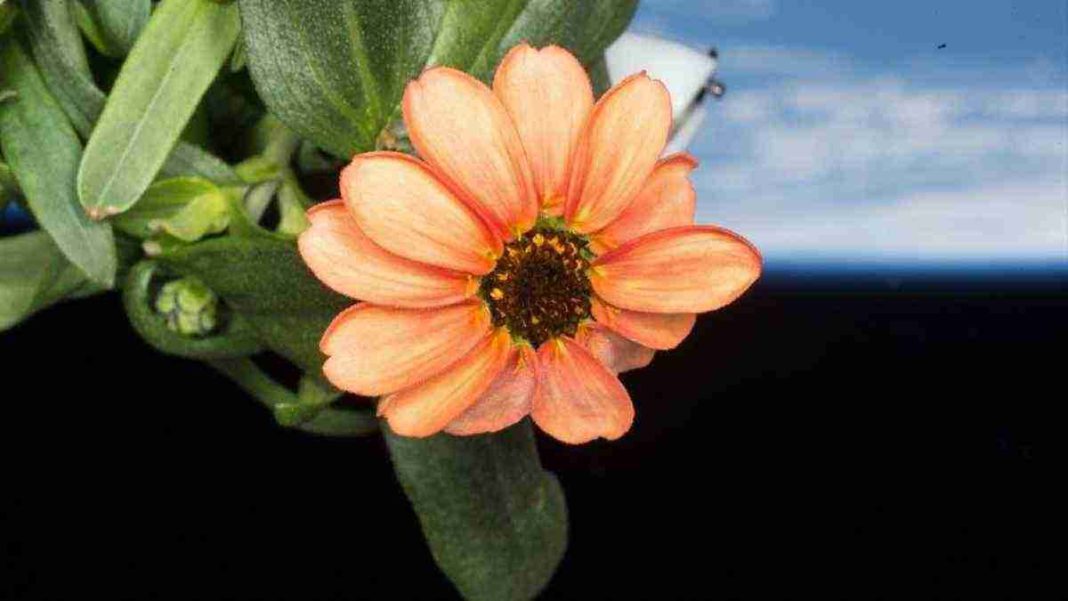UNITED STATES: In a groundbreaking achievement, NASA has shared a captivating picture of a blooming zinnia flower that was successfully grown aboard the International Space Station (ISS) in its Veggie facility. The image has taken the internet by storm, sparking excitement and curiosity among science enthusiasts worldwide.
Recognizing the importance of providing astronauts with a sustainable source of fresh and easily absorbable nutrients during long-duration space missions, NASA has been actively exploring ways to cultivate fruits and vegetables in microgravity environments. The recent success with the zinnia flower marks another significant step towards achieving this goal.
NASA’s journey into space gardening began in 2015, when astronaut Kjell Lindgren initiated the Veggie system onboard the ISS. The system included specially designed “rooting pillows” containing zinnia seeds, which served as the foundation for this ambitious horticultural experiment.
The released photograph showcases the vibrant zinnia plant thriving amidst the unique environment of the International Space Station. NASA explained that while the study of plant growth in space dates back to the 1970s, this particular experiment commenced on the ISS in 2015, paving the way for further advancements in space agriculture.
The space garden is important, as NASA noted, adding that “our space garden isn’t just for show: learning how plants develop in orbit will help us understand how to grow crops on Earth, providing a valuable source of fresh food on long-term missions to the Moon, Mars, and beyond.”
NASA’s pioneering efforts in space farming have already yielded encouraging results. Astronauts on the ISS have successfully grown lettuce, tomatoes, chile peppers, and various other vegetables, demonstrating the potential for ongoing food production in space.
The challenging process of growing zinnias in microgravity has provided an exceptional opportunity for scientists back on Earth to gain valuable insights into plant growth in such environments. Furthermore, it has allowed astronauts to practise autonomous gardening—a crucial skill for deep space missions where self-sufficiency will be key.
The release of the zinnia flower picture has generated an overwhelming response on social media platforms. Science enthusiasts and the general public alike have flooded the comment sections, expressing their enthusiasm and admiration for this remarkable feat. The image serves as a testament to human ingenuity and our relentless pursuit of knowledge beyond the confines of our planet.
With each successful endeavour in space gardening, NASA brings us closer to a future where astronauts can sustainably grow fresh food during extended space missions. These advancements not only enhance our understanding of plant biology but also pave the way for self-sufficiency and the possibility of long-term human habitation on celestial bodies such as the Moon, Mars, and beyond.
As NASA continues to push the boundaries of space exploration, the cultivation of plants in microgravity environments will remain a critical area of research. Through such endeavours, we are unlocking the secrets of life beyond Earth and taking significant strides towards a future where space travel and sustainable food production go hand in hand.
Also Read: NASA Scientist Proposes Possibility of Life on the Moon



